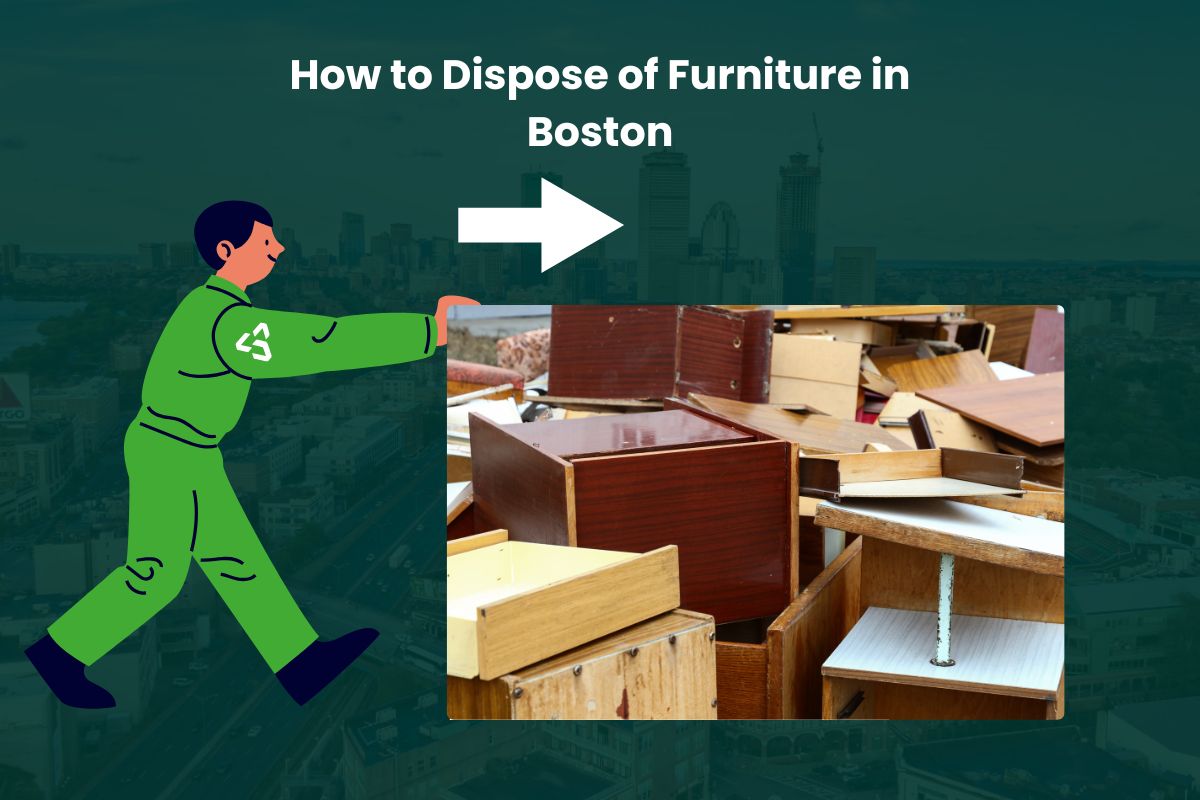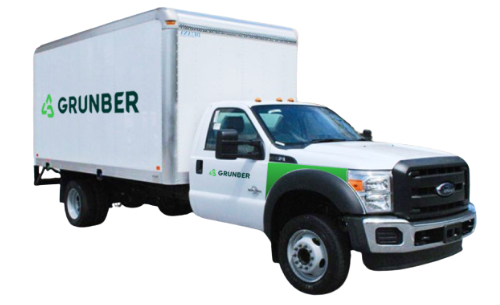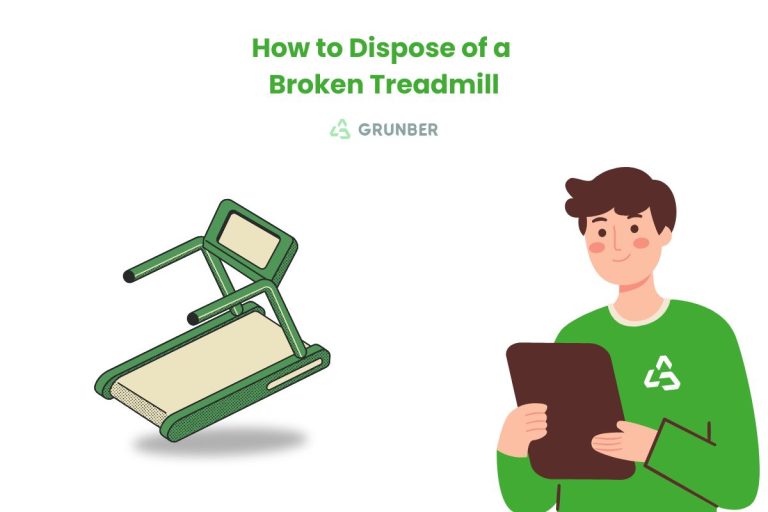Disposing of furniture in Boston isn’t as simple as dragging it to the curb and hoping the city will take it away. With strict municipal regulations, an abundance of donation options, and numerous eco-friendly disposal methods, the process requires some knowledge and planning.
In this comprehensive guide, we’ll cover everything you need to know to get rid of your old furniture responsibly in the greater Boston area. We’ll explore local rules, safe disposal practices, where to donate or sell, how to recycle, and what to do if your furniture is beyond repair.
By the end, you’ll have a clear roadmap to ensure your old sofa, dining set, or mattress doesn’t end up cluttering the streets or harming the environment.
You may also be interested in:
Understanding Boston’s Rules & Regulations
Boston has specific guidelines when it comes to disposing of large, bulky items like furniture. Unlike smaller household waste, you can’t just leave a couch or dresser out on the curb with your regular trash. The City of Boston’s Public Works Department oversees waste management and enTo responsibly get rid of furniture in Boston, schedule a free curbside bulk pickup through BOS:311 or the city’s website.forces rules designed to keep streets clean and reduce illegal dumping.
Key points to remember:
- Scheduled Bulk Pickup: Boston requires residents to schedule a free curbside bulk item pickup. You can do this through BOS:311 or by visiting the City of Boston Public Works website for instructions.
- Proper Placement: Furniture must be placed at the curb on your designated collection day, not before. Placing furniture out too early could result in fines or citations.
- Restrictions on Certain Items: Some items (like mattresses) have special regulations. As of recent ordinances, mattresses often require separate handling because of recycling mandates. Always check city guidelines or call BOS:311 if unsure.
Adhering to these rules ensures you remain in compliance with local regulations and maintain Boston’s quality of life and environmental standards.
5 Ways to Dispose of Furniture in Boston Properly
Donate Usable Furniture to Local Boston-Based Charities or Thrift Stores
If your furniture is still in good, usable condition, consider donating it to local organizations that help Boston residents in need. Some well-known charities include:
- Habitat for Humanity ReStore (Boston Location): These stores accept gently used furniture and sell them at discounted prices, with proceeds supporting affordable housing efforts. Habitat for Humanity ReStore.
- Goodwill Boston: Goodwill accepts donations of functional furniture and resells them to fund job training and community programs.
- St. Vincent de Paul: Known for providing assistance to families, they might arrange pick-up for larger furniture items.
Donating not only helps people in your community access affordable home furnishings but also keeps perfectly usable items out of landfills.
Sell or Trade Your Furniture on Boston-Specific Marketplaces
Boston’s vibrant community and student population mean there’s often a market for secondhand furniture. Consider:
- Facebook Marketplace (Boston Groups): Post your items to local buy/sell/trade groups. You can often find buyers from nearby neighborhoods, making pickup easy.
- Nextdoor: A neighborhood-based app where you can list furniture for sale or even give it away for free to someone just a few blocks away.
- Local Flea Markets and Pop-Up Sales: From time to time, Boston hosts community events where you can rent a small space and sell your furniture directly to locals.
Selling or trading locally reduces transportation emissions and keeps your items circulating within the community. Plus, you earn some cash while helping a neighbor furnish their home affordably.
Recycle Parts and Materials at Boston’s Certified Recycling Centers
Some furniture, especially wooden or metal pieces, can be recycled. While Boston’s curbside recycling doesn’t accept large furniture, you can look to specialized recycling facilities.
- Boston Recycling & Disposal Centers: Check the City of Boston Trash & Recycling for a “Recycling Locator” tool or to find a nearby drop-off center.
- MassDEP Beyond the Bin Recycling Directory: This state-level resource helps Bostonians find places that accept materials like wood or metal frames for proper recycling.
- Scrap Yards: If you have metal items (like bed frames), consider taking them to a local scrap metal yard. They often pay by weight.
Call ahead to confirm acceptance and any preparation requirements, such as removing fabric or separating materials.
Hire a Professional Junk Removal Service in Boston
If convenience is your priority, consider hiring a reputable junk removal service like Grunber for reliable furniture removal in boston. To ensure you make the right choice, ask the following questions:
- Are They Licensed and Insured? Ensure the company is fully insured to cover any potential damage or injuries.
- Eco-Friendly Disposal: Inquire about their disposal methods. Responsible providers will donate or recycle salvageable pieces before resorting to landfills.
- Transparent Pricing: Get a clear quote upfront to avoid surprises.
Professional services save you time, heavy lifting, and the hassle of coordinating multiple pickups.
Utilize Boston’s Community Drop-Off or Bulk Pickup Events
Boston occasionally hosts special waste collection events, especially after move-in periods for students, commonly known as “Allston Christmas” (around September 1), when a huge turnover of apartments leads to abundant furniture turnover. Keep an eye on:
- Boston.gov Announcements: The city website often posts about upcoming bulky waste days.
- Local Neighborhood Groups: Community organizations may plan furniture swaps, charity drop-offs, or yard sale events.
These events help you dispose of items efficiently, often at no extra cost, while fostering community engagement.
How to Recycle Furniture in Boston
While not all furniture materials can be recycled curbside, Boston’s commitment to sustainability offers alternatives. To recycle furniture responsibly:
- Identify Recyclable Components: Metal frames, certain plastics, and wooden parts (if untreated) can sometimes be recycled.
- Consult the City’s Recycling Website: Visit Boston’s Recycling & Trash Guide for guidance or call BOS:311 for instructions.
- Find a Specialized Recycler: Some private companies focus on recycling old furniture, breaking it down into raw materials. A quick online search or checking the state’s Beyond the Bin directory can point you in the right direction.
Be prepared to transport the furniture or disassemble it for easier handling. If you’re unsure, ask for advice from the recycling facility you plan to use.
What to Do With Furniture That’s Damaged or Unwanted
If your furniture is damaged or outdated, you still have options:
- Repair or Refinish: Boston has numerous local craftsmen, upholstery services, and woodworkers who can breathe new life into worn-out furniture. Repairing and refinishing is often more eco-friendly than discarding and buying new.
- Upcycling and DIY Workshops: The city has a creative community. Look into upcycling classes at local maker spaces, or visit art studios that can show you how to transform an old chair into a unique, repurposed piece.
- Disassemble for Parts: If the furniture is beyond salvage, consider dismantling it. Metal parts can go to a scrap yard, while wood can sometimes be composted or turned into art projects. The more you divert from the landfill, the better.
By considering repair and upcycling, you support Boston’s cultural sustainability and extend the life cycle of your furniture.
Quick Reference Checklist for Furniture Disposal in Boston
- Assess the Item’s Condition: Is it still usable or easily fixable?
- Check Boston Regulations & Pickup Schedules: Confirm bulk item pickup days with BOS:311.
- Select a Disposal Method: Donation, resale, recycling, junk removal, or city-managed pickup events.
- Arrange Transport or Curbside Placement: Follow instructions for drop-off, scheduling appointments, or setting items curbside on the correct day.
This checklist helps ensure you don’t miss any critical steps and stay compliant with local rules.
Furniture Disposal FAQs for Boston Residents
Is It Legal to Put Furniture on the Curb in Boston?
Yes, but only if you schedule a bulk pickup with the city first. You must place the furniture curbside on the designated day, ensuring it doesn’t block sidewalks or violate city ordinances. Otherwise, you risk fines.
Can I Recycle My Furniture for Free in Boston?
Recycling furniture for free can be challenging. The city’s curbside recycling program doesn’t accept large furniture, but you might find free drop-off events or charity-run furniture banks occasionally. Nonprofit organizations or community-based events sometimes offer free pick-up or accept your furniture as a donation, indirectly “recycling” it back into the community.
How Long Does It Take for Furniture to Break Down in a Boston Landfill?
Furniture, especially if made from treated wood, foam, plastics, and synthetic fabrics, can take decades to break down in a landfill. Some materials never fully decompose. That’s why recycling, donating, or repurposing your old furniture is crucial to minimize environmental impact in the Boston area.











